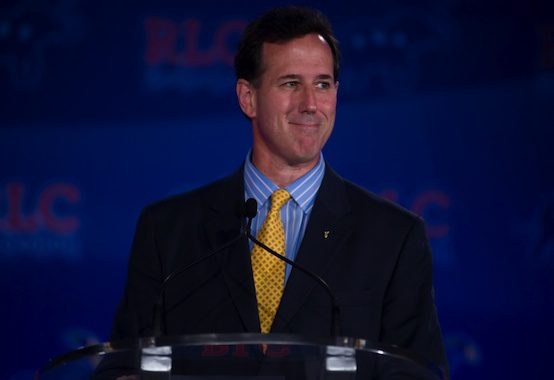Rand Paul vs. Santorum: Which Do “Electability” Republicans Choose?

Former senator Rick Santorum really doesn’t like Sen. Rand Paul. In a profile of the latter’s burgeoning support in today’s Wall Street Journal, Santorum says, “Rand Paul’s brand doesn’t line up with all of what our party stands for—on national security, social values, the economy and the role of government in society. His message won’t ultimately lead us to be a more successful party.”
That’s how many Republicans feel about Santorum himself, of course, which is why Mitt Romney was last year’s Republican nominee. GOP presidential primary voters habitually prefer “electable” candidates—even those who can’t actually win elections—over ideologically purer ones. This bloc, and its bellwethers in the establishment, are rooting for a politician from Florida in 2016. That could be Marco Rubio or Jeb Bush; either is conventional enough.
But neither Rubio nor Jeb has the kind of energized base that Rand Paul and Rick Santorum have. The country isn’t likely to be ready for another Bush by 2016, and if Rubio washes out, where does that leave the average Republican presidential primary voter—the guy who voted for McCain and Romney? It may leave him to choose between Santorum and Rand Paul, and the “brand” each represents. And which of those will seem more electable in 2016?
Normally the religious right winds up having to reconcile itself to the pick of the electability voters. In 2016—if the party establishment continues to weaken—electability voters themselves may have to reconcile themselves with one of the party’s ideological activist blocs.
There’s a long way to go—at this stage in the 2012 cycle, it looked like Sarah Palin and Mike Huckabee might be contenders. And whoever does win the 2016 nomination may find it a poisoned chalice if it leads to defeat and discredit in November. (Although Goldwater’s 1964 annihilation didn’t ultimately derail the ascent of conservative movement with which he was identified.) But there are reasons to think the GOP may face a more philosophically polarizing contest in three years’ time than it’s had to confront in the last four decades.
Comments